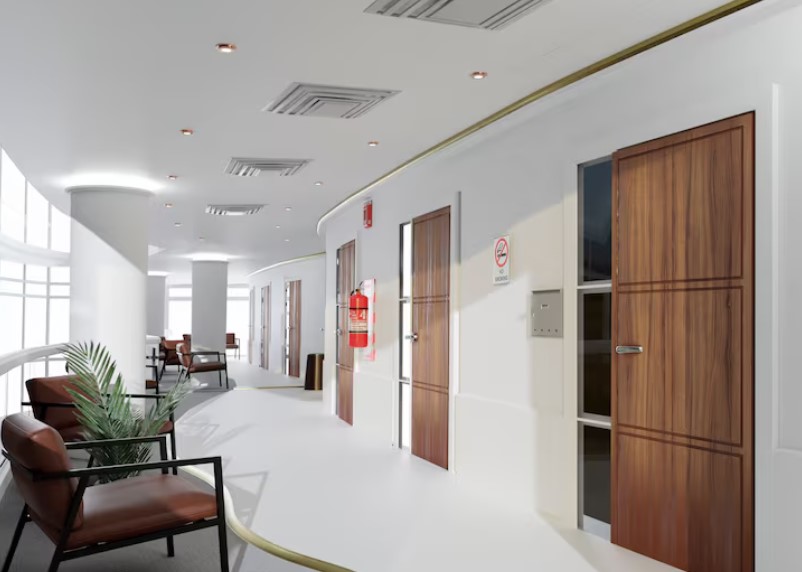07
Aug 2025
Tips to Find Comfortable, Affordable Hospital Accommodation in Melbourne
Published in Travel Tips on August 07, 2025

When you or a loved one requires hospital care in Melbourne, the last thing you want to worry about is where to stay. Being close to the hospital is not just a matter of convenience—it can save valuable time, reduce stress, and make it easier to support a patient during treatment or recovery. But finding hospital accommodation that is both comfortable and affordable can be challenging, especially in a busy city like Melbourne.
This guide will walk you through practical tips to help you secure the best possible stay without breaking your budget.
1. Prioritise Proximity to the Hospital
The closer your accommodation is to the hospital, the more convenient and less exhausting it will be. Many of Melbourne’s major hospitals, such as The Royal Melbourne Hospital, The Royal Children’s Hospital, The Alfred Hospital, and St Vincent’s Hospital, are located in or near the CBD and Parkville area. Staying nearby can mean walking to appointments, avoiding traffic, and saving on transport costs.
Tip: Use Google Maps to search for accommodation within a 1–2 km radius of your hospital. Walking distance or a short tram ride can make a big difference during stressful times.
2. Consider Serviced Apartments for Longer Stays
For stays longer than a few nights, serviced apartments often provide better value than hotels. They typically include:
- A fully equipped kitchen for cooking meals
- Laundry facilities for convenience
- Separate living areas for more space
- Weekly cleaning services
This type of accommodation is ideal for patients recovering after discharge, families accompanying a loved one, or those travelling from interstate. Many serviced apartment providers in Melbourne offer special hospital rates or discounts for extended stays—be sure to ask when booking.
3. Inquire About Hospital Partnership Rates
Some hotels and apartment providers have agreements with hospitals to offer discounted rates for patients and their families. This is common near large medical facilities and can significantly reduce accommodation costs.
When calling or emailing to book, always mention that your stay is hospital-related. This not only gives you access to better rates but may also unlock additional benefits like flexible check-in times or complimentary parking.
4. Look for Cost-Saving Inclusions
When comparing accommodation prices, check what’s included. Sometimes a slightly higher nightly rate can save you more in the long run if it covers extras like:
- Free Wi-Fi for communication and entertainment
- On-site laundry to avoid expensive laundromats
- Kitchen or kitchenette for preparing your own meals
- Parking if you’re bringing a car
- Public transport proximity for easy hospital access
These inclusions can make your stay more comfortable and reduce unexpected expenses.
5. Explore Hospital-Run or Charity Accommodation
In some cases, hospitals themselves provide on-site accommodation or partner with charities to offer affordable options for patients and carers. Examples include:
- Ronald McDonald House for families of children receiving treatment
- The Leukaemia Foundation’s free or low-cost patient housing
- Hospital guest houses or nearby residential lodges
These options are often in high demand, so it’s best to enquire and book as early as possible.
6. Book Early to Secure the Best Rates
Melbourne hosts numerous events, conferences, and festivals throughout the year, meaning accommodation near hospitals can fill up quickly. If you know your hospital admission or appointment date in advance, book your stay early to avoid last-minute price surges or limited choices.
7. Read Reviews for Comfort and Cleanliness
Your accommodation should be a place where you can rest and recharge. Always check recent reviews on Booking.com, Google, or TripAdvisor to get an honest view of the property. Look for feedback on:
- Cleanliness and hygiene standards
- Bed comfort
- Noise levels
- Accessibility for people with mobility challenges
- Staff friendliness and supportiveness
8. Ensure Good Public Transport Access
If you don’t have a car, ensure your accommodation is close to tram or bus stops that connect directly to your hospital. Melbourne’s public transport system is reliable, and many hospitals are within easy reach of multiple tram routes. If your stay is within the CBD’s Free Tram Zone, you can travel without paying fares, further lowering your costs.
9. Ask About Flexible Booking Policies
Medical schedules can change at short notice due to treatment delays, early discharges, or unexpected complications. Choose accommodation with flexible cancellation or change policies to avoid losing money if your plans shift unexpectedly.
10. Balance Affordability with Comfort
While budget is important, don’t overlook comfort. A slightly more expensive room that’s quieter, cleaner, and more restful may help you manage hospital visits better. Good sleep and a stress-free environment can positively impact your energy and emotional wellbeing.
Final Thoughts
Finding the right hospital accommodation in Melbourne is about more than just price—it’s about ensuring comfort, convenience, and peace of mind during a potentially challenging time. By prioritising location, exploring serviced apartment options, checking for hospital partnerships, and booking early, you can secure a stay that meets both your needs and your budget.
Whether you’re a patient recovering from treatment, a family member providing care, or a visitor supporting a loved one, the right accommodation can make all the difference. Plan ahead, compare your options carefully, and don’t hesitate to ask providers for special rates or flexible terms.
With a little research and preparation, you can find a place that offers the comfort you need and the affordability you want—allowing you to focus on what truly matters: health, recovery, and support.









